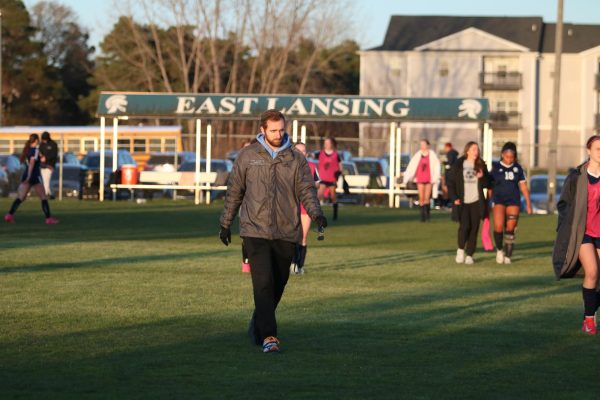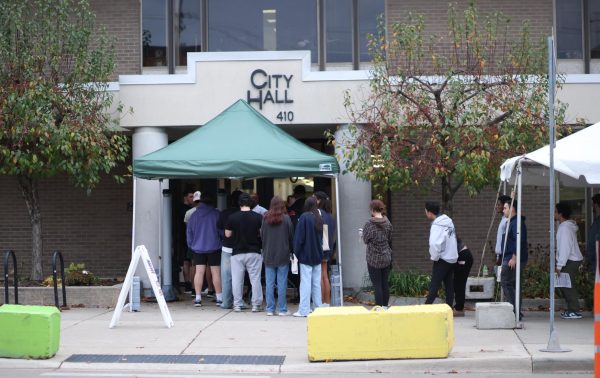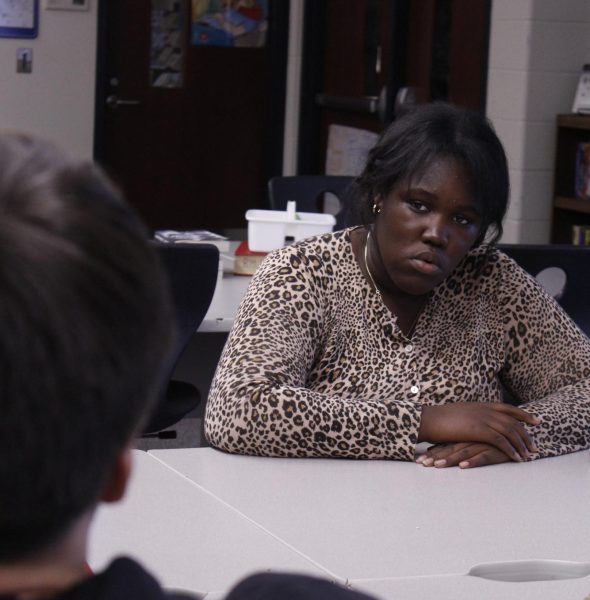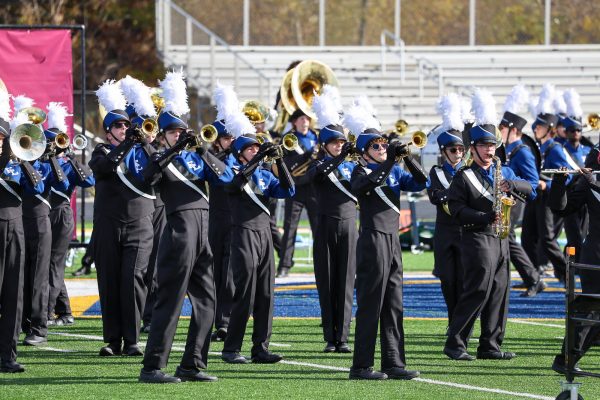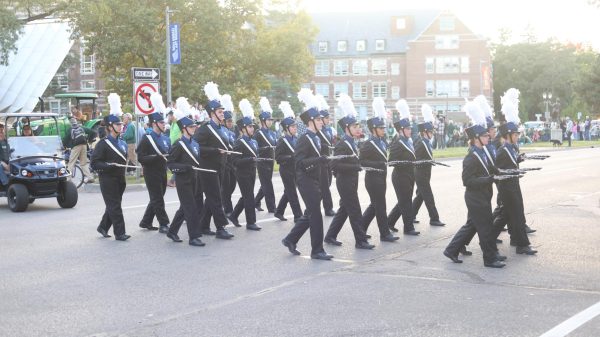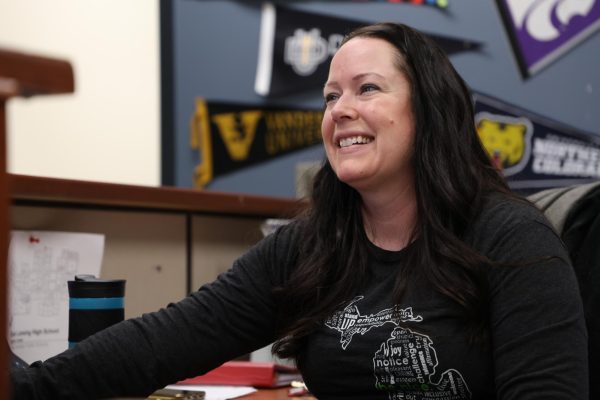From admiration to action
ELHS student shares her experience working in search and rescue
After receiving her credentials, Kera Thompson (12) smiles on May 16. Following a six month training period, Thompson received her credentials, which allows her to go out into the field. Courtesy of Kera Thompson
Pushing aside thorn bushes, slowly making her way through the forest, field support specialist Kera Thompson (12) remembers sweating in the 85 degree heat as she searched for a missing person. She remembers this search as one of the hardest because of the grueling heat, dense foliage and long hours of walking but she also remembers it as one of the first times she truly bonded with the rest of her team.
Thompson has been a deployable support specialist at Michigan Search and Rescue since last May after she successfully completed a sixth-month training period. She has always been inspired by her grandfather, who has worked in emergency management and as a firefighter and EMT for most of his life.
“The whole time I was a kid, I always really admired what he did,” Thompson said. “He would come back and tell me about all these different scenarios where, you know, he’d be in a building where the floor collapsed or something like that, and I just thought it was really brave.”
She says she feels almost drawn to helping people and the act of helping people in emergency situations is something that she enjoys and finds passion in.
“I think that helping people in that sort of way, when people really, really need your help is like something that I am interested in,” Thompson said. “In search and rescue, [helping people] is definitely the biggest driver for people.”
According to Thompson, the role of emergency responders to the missing person’s family is really downplayed.
“We work really closely with the people’s family and some of the time they are very grateful to us,” Thompson said. “We’re very important to them because we are going out and looking for their lost loved one so we end up having a pretty close relationship with some of them.”
Many of these families can feel a sense of hopelessness and can be disoriented and confused about what they are supposed to do, Thompson says. They want to help find their loved one as quickly as possible, but they don’t know how.
“A lot of people who have somebody go missing aren’t really gonna know what to do because it’s like such an uncommon situation,” Thompson said. “They kind of just turn towards us and they can only really lean on us and the police to help locate whoever is missing. So definitely it’s a big impact for them.”
The dogs, who Thompson really enjoys working with, are also a big part of the search and rescue process because of their ability to find people based on scent.
“Humans don’t have, really any ability to find people so the dogs are really the only method of like, reliably, sometimes finding a person because there’s so many factors that go into it,” Thompson said.
It is very rare for someone to go into search and rescue as a career since it rarely pays and is mostly volunteer work according to Thompson.
“I don’t know what I want to do as my career but [search and rescue] is definitely something that I have a passion in,” Thompson said. “ I am going to follow through with [search and rescue] and hopefully advance to something like dog training in the future.”
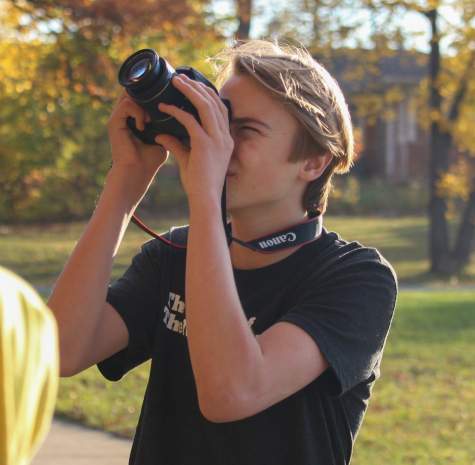
Quinn Martin is a member of the Class of 2024 and is the Photo Editor of Portrait. He has been on staff since his sophomore year during the 2021-22 school...




